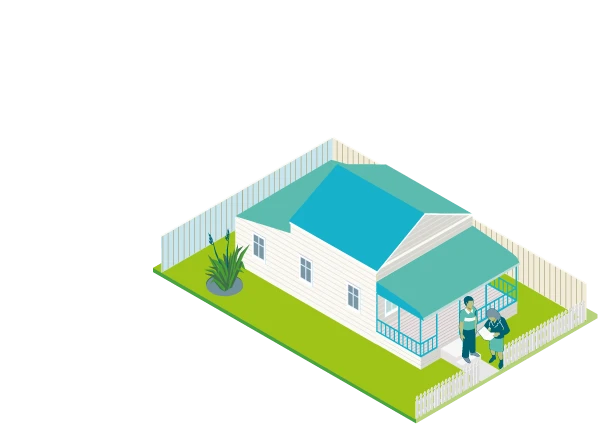Regular property inspections are important for a healthy rental and a good relationship between landlord and tenant.
Landlords can enter the property for inspections
If you’re a landlord, it’s a good idea to regularly inspect your rental property. Inspections help you check everything’s working well, there’s no damage, and your tenants are keeping things reasonably clean and tidy. It’s also important to note that some insurance providers require the landlord to prove that regular property inspections have been done.
More information on property insurance
Timeframes for property inspections
Inspections can occur between 8am and 7pm for rental properties, and between 8am and 6pm for boarding houses. The maximum frequency for inspections is once every four weeks.
Notice of an inspection must be given to the tenant at least 48 hours before the inspection, and not more than 14 days in advance.
If a landlord is testing the property for methamphetamine, at least 48 hours’ notice needs to be given to the tenant. For a boarding house, 24 hours’ notice is required. The landlord needs to provide the test results in writing to each tenant within seven days of getting them.
Rental properties affected by meth explains what to do if you suspect a property is being used as a P lab.
General information for property inspections
Your tenant doesn’t have to be present during inspections, but you should ask if they want to be. If the tenant isn’t going to be present, ask them to leave a note of any specific things they want you to look at. This can help alert you to any maintenance issues.
Always take a camera and the property inspection report you completed at the start of the tenancy (part of the tenancy agreement). You can refer to the report when asking the tenant about a repair or maintenance issue. Take photos in case the matter is disputed at a later date.
If you are taking any photos during an inspection, be careful not to include the tenant's belongings if this is possible.
Be courteous during property inspections – give the right notice, choose a suitable time and day, and encourage feedback. Always thank your tenant if they’re taking good care of your property.
Initial property inspection explains the importance of the first inspection of a tenancy.
If a reinspection is required
If the landlord has agreed with the tenant that they will fix something or clean something by a certain date and they need to go back to make sure they have done it, the landlord can reinspect the property by giving the tenant the correct amount of notice (48 hours’ as above).
Making the rental safer for young children
Whether you are a tenant or a landlord, you can play a part in making your rental home safer for young children. Start by going through the home to identify any blinds or curtains with long or looped cords that are within a child's reach or near furniture they can climb on.
The rental home can be made safer for young children by replacing or removing any window coverings with cords, using a tension device to keep cords safe, retrofit cords to make them safer and keep all cords out of reach.
Tension devices (also known as "cord tensioners") are available from hardware or window furnishing stores. This is a minor change that is cost-effective and can make a great difference towards safer homes for children.
More information on Blinds and window shades with cords(external link) – Product Safety New Zealand
If you are a tenant and want to install a cord tensioner or a cord cleat, you can make a minor change request to your landlord. Landlords must not decline a request for a minor change and have 21 days to respond. If you are a property manager or landlord, you can include a safety check in your regular property inspections.
Last updated: 06 October 2022


